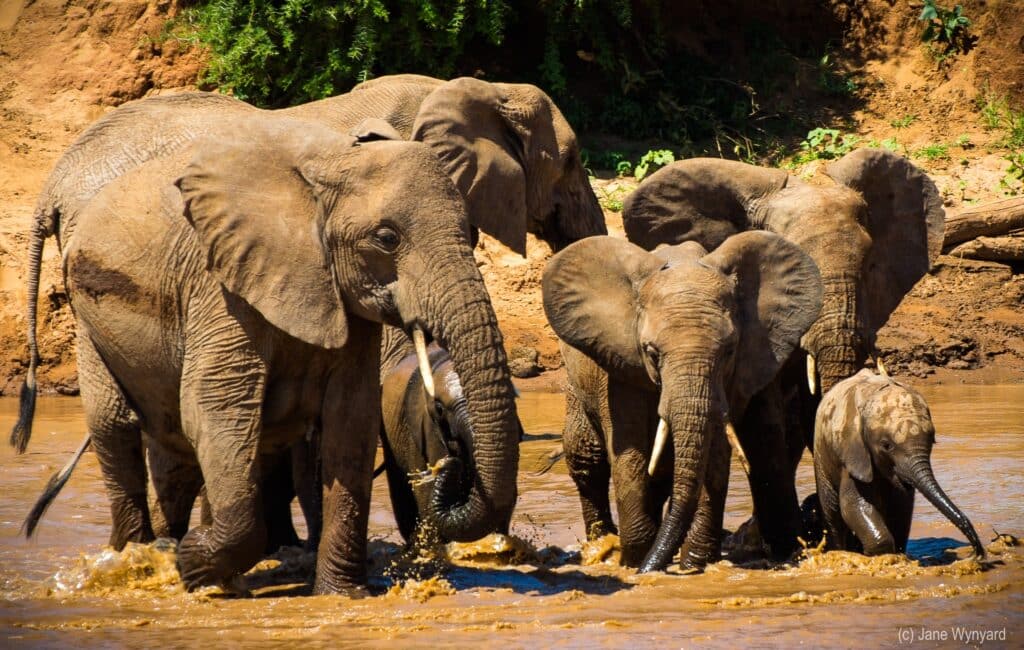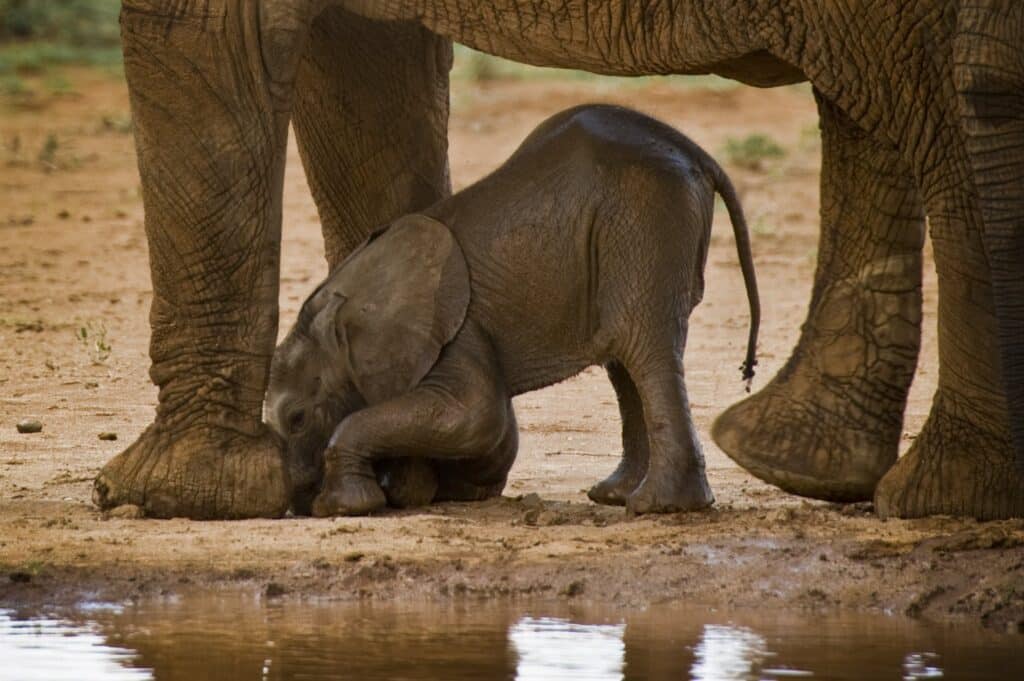About Elephants
Elephants are social and intelligent.
They live as long as humans do and have many things in common with us. They live in socially complex family units. They take care of their young like we do, and nurture and reassure them into their teens. They have close family ties and mourn their dead. When one spends time watching elephants, it becomes undeniable that they have an awe-striking intelligence.
Indeed, the African elephant is long-lived, sometimes surviving to 60 to 70 years. Male elephants often live longer, even to 90 years old.
Scientists (like those at Save the Elephants) know more about elephants than almost any other animal, yet are only just starting to understand their world. Imagine how much more there is to discover, and what elephants have to teach us about life.

Elephants live in family groups. An older female (the matriarch) leads the family and uses her old age and experience to protect the herd and show it to food and water.
Females stay with the same family all their lives, while the males only remain with the herd until they are 12-13 years old. They then join a group of other males called a bachelor herd or live alone.
Elephants are natural gardeners, helping to disperse seeds and create spaces for other plant species to grow, and sculptors of Africa’s most iconic landscapes. They are also culturally important and a cornerstone of the $34 billion tourism industry across Africa.
